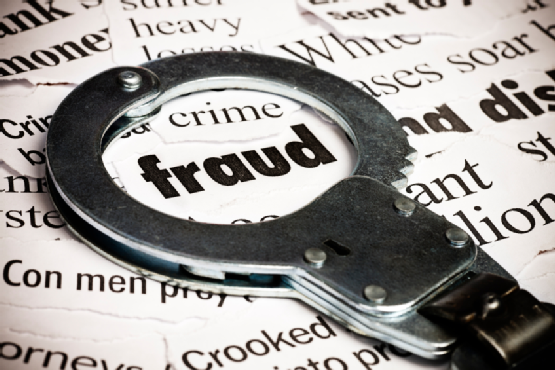Now that we are in the height of tax return season, it is incredibly important to be on the lookout for fraud that may affect you.
Fraud comes in many different forms. According to the IRS, the four most prevalent types of fraud include:
- IRS tax return fraud
- Identity theft
- Credit and debit card fraud
- Illegal deposit taking
According to the IRS, fraud costs victims $190 billion annually in the U.S. alone. Keep reading for more information on each of these types of financial fraud and what you can do to avoid them.
IRS tax return fraud
Listed as the No. 1 fraud by the IRS, identity thieves are using stolen personally identifiable information (PII) to file victims’ tax returns and then receive their refunds. Victims of tax return fraud will be unable to receive their tax refund within the normal tax return period (in fact, it takes the IRS an average of 312 days to resolve tax related theft causes).
To prevent yourself from falling victim, take the following measures:
- Don’t carry any documents with your Social Security Number (SSN) on you
- Don’t give a business your SSN
- Check your credit report at least every 12 months
- Secure personal and sensitive information in your home
- Protect your personal computers by using firewalls, anti-spam/virus software, and routinely change your passwords.
- Remember to shred important documents with your SSN or other personally identifiable information. If you just throw them in the trash, a criminal could end up with them.
- If you believe you are the victim of tax return fraud, contact the IRS immediately at (800) 829-0433 or go to the IRS Fraud Website for more information.
Identity theft
Identity theft is a crime in which an imposter obtains key pieces of personal information, such as Social Security or driver’s license numbers in order to impersonate someone else. The information can be used to obtain credit, merchandise, and services in the name of the victim, or to provide the thief with false credentials. In addition to running up debt, an imposter might provide false identification to police, creating a criminal record or leaving outstanding arrest warrants for the person whose identity has been stolen.
To protect yourself, take the following precautions:
- Create strong passwords or passphrases and update them frequently
- Be aware of what you share; limit the personal details you put online or share over the telephone
- Keep sensitive, personal and financial documents secure
- Protect your mobile device
- Routinely check your credit report
- Be careful what you throw in the trash -shred important documents
- Contact the Illinois State University Police or your local law enforcement if you suspect fraud
Debit/credit card fraud
Debit/credit card fraud occurs when an individual has an intent to fraudulently obtain money, goods, or services by using the access card of a cardholder who has not authorized its use. To prevent debit/credit card fraud, use the following precautions:
- Check your bank statements immediately. Make sure all payments are correct and yours.
- Periodically check your account balance and transactions
- Contact your bank immediately if your card is lost, stolen, or subject to fraudulent use
- Memorize your PIN. Do not use your birth date, address, phone number, or Social Security Number.
- Keep your receipts
- Mark through any blank spaces on debit slips, including the tip line at restaurants
- Do not give your PIN to anyone over the phone. Often thieves steal the cards and then call the victim for their PIN, sometimes claiming to be law enforcement or the issuing bank.
- Contact the Illinois State University Police or your local law enforcement if you suspect fraud
Illegal deposit taking
Illegal deposit taking is an act of receiving, taking, or accepting of deposits (moneys, precious metals, precious stones, any other article) from members of the public that promises a repayment with interest or returns in money or money’s worth without a valid license under the Banking and Financial Institutions Act of 1989.
To avoid this type of fraud, remember the following:
- Golden rule: If it sounds too good to be true, it’s probably a lie
- Deal only with licensed financial institutions and authorized dealers
- Check with the relevant authorities before investing/depositing
- Don’t be pressured or rushed to invest
- Be extra careful with investments over the internet
- When you make an investment, be sure to keep copies of all the investment documents and communications
For more information on fraud, follow ISU IT Help on Facebook and Twitter (@ISUITHELP) or contact the Illinois State University Information Security Office at InformationSecurityOffice@IllinoisState.edu. Please be mindful and safe this tax season!

